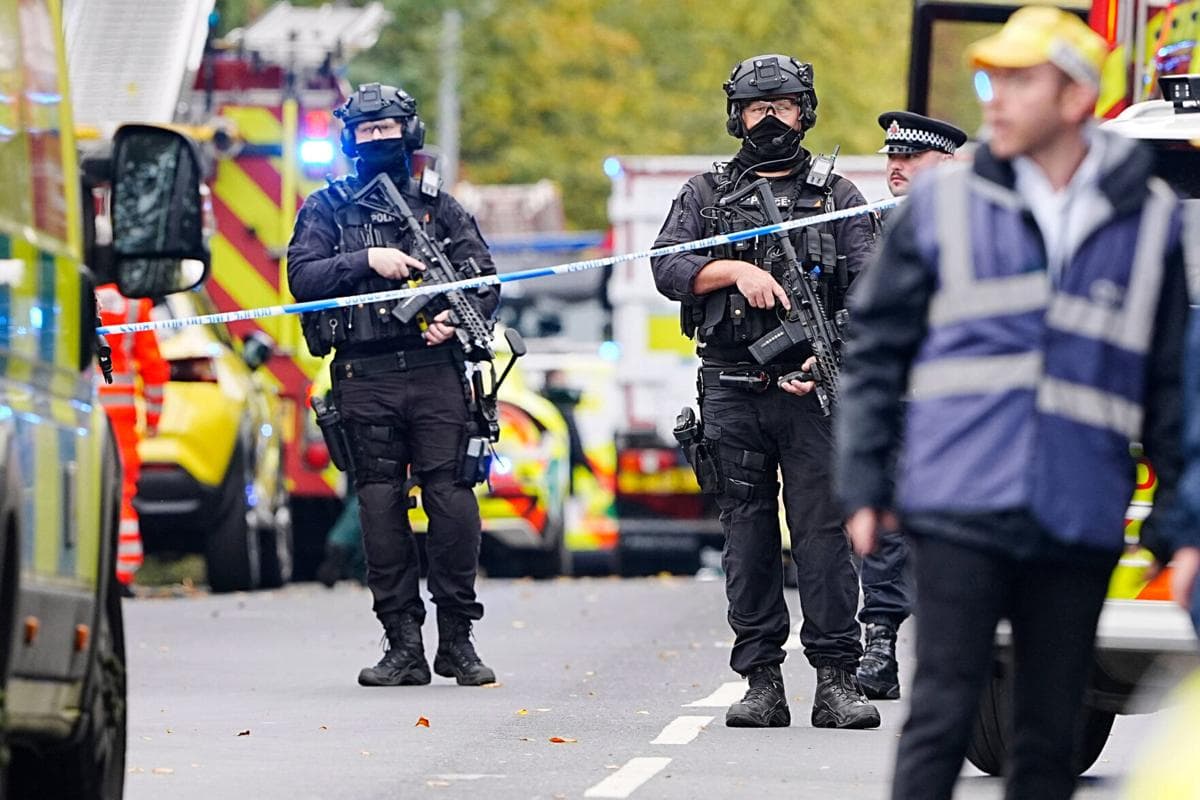We're loading the full news article for you. This includes the article content, images, author information, and related articles.
The fatal shooting of a British national in Tema, Ghana, highlights a pattern of violent, motorbike-enabled crime that resonates with ongoing security challenges in Kenyan cities like Nairobi, raising urgent questions for regional law enforcement.

ACCRA, GHANA – A 68-year-old British man, identified as Ashraf Qarmar Parvez, was shot and killed during a robbery in the port city of Tema on the evening of Friday, 7 November 2025, according to Ghanaian police authorities. The incident, which has sparked a manhunt for six suspects, underscores the persistent and evolving threat of violent urban crime across West and East Africa, drawing sharp parallels to security concerns familiar to residents of Nairobi and other Kenyan metropolitan areas.
The attack occurred at a popular drinking spot opposite the Tema Community 9 Cemetery. According to a statement from the Tema Regional Police Command, Mr. Parvez was with a group when six men arrived on two motorbikes. Two of the assailants approached the table, snatched his mobile phone, and shot him when he attempted to retrieve it. The suspects fled the scene immediately. Mr. Parvez was rushed to Tema General Hospital but was pronounced dead shortly after arrival. Investigators recovered a 9mm spent bullet shell from the scene and have been interviewing eyewitnesses as part of a "full-scale operation" to apprehend the perpetrators.
The UK's Foreign, Commonwealth & Development Office (FCDO) confirmed it is providing consular support to Mr. Parvez's family. While a local police spokesperson described the shooting to the BBC as a "rare incident," the violent nature of the crime and the method used by the assailants—fleeing on motorbikes—is a tactic increasingly common in urban centers across the continent, including Kenya, where criminals on "boda bodas" are a well-documented public menace.
The incident in Tema is not an isolated event but rather a reflection of broader urban security challenges linked to rapid urbanization, youth unemployment, and the proliferation of firearms. Security analysts and organizations like the Africa Center for Strategic Studies have noted that while organized conflict remains predominantly rural, violent crime is a growing threat in Africa's fast-growing cities. These urban areas, often characterized by sprawling informal settlements and inadequate policing, can become hotspots for criminal activity.
In Kenya, particularly Nairobi, residents have long contended with high rates of street crime, including muggings, carjackings, and armed robberies. The use of motorcycles to commit crimes and escape quickly through congested city traffic is a significant challenge for the Kenya National Police Service. This parallel highlights a shared vulnerability and the need for cross-continental security cooperation and strategy-sharing to combat similar criminal methodologies.
The security risks for foreign nationals in both Ghana and Kenya are formally recognized by the British government. The FCDO's travel advisory for Ghana warns that "cases of robbery, burglary and serious assault have become more common since 2021," sometimes involving weapons, and that "foreign nationals have been attacked and robbed at gunpoint." It also notes that terrorist attacks "cannot be ruled out," particularly near the northern borders.
Similarly, the FCDO advisory for Kenya warns of a "high threat of terrorist attack" and a significant risk of kidnapping. The advisory specifically cautions against all but essential travel to several regions, including areas along the Kenya-Somalia border, due to threats from extremist groups like Al Shabaab. While the nature of the primary threats may differ—terrorism in Kenya versus violent street crime in Ghana's urban centers—both advisories paint a picture of a complex security landscape requiring vigilance from citizens and visitors alike.
As Ghanaian authorities continue their search for Mr. Parvez's killers, his death serves as a tragic reminder of the human cost of urban insecurity. For policymakers in both Accra and Nairobi, it reinforces the urgent need for effective, modern policing strategies to protect citizens in rapidly changing urban environments.
Keep the conversation in one place—threads here stay linked to the story and in the forums.
Sign in to start a discussion
Start a conversation about this story and keep it linked here.
Other hot threads
E-sports and Gaming Community in Kenya
Active 9 months ago
The Role of Technology in Modern Agriculture (AgriTech)
Active 9 months ago
Popular Recreational Activities Across Counties
Active 9 months ago
Investing in Youth Sports Development Programs
Active 9 months ago